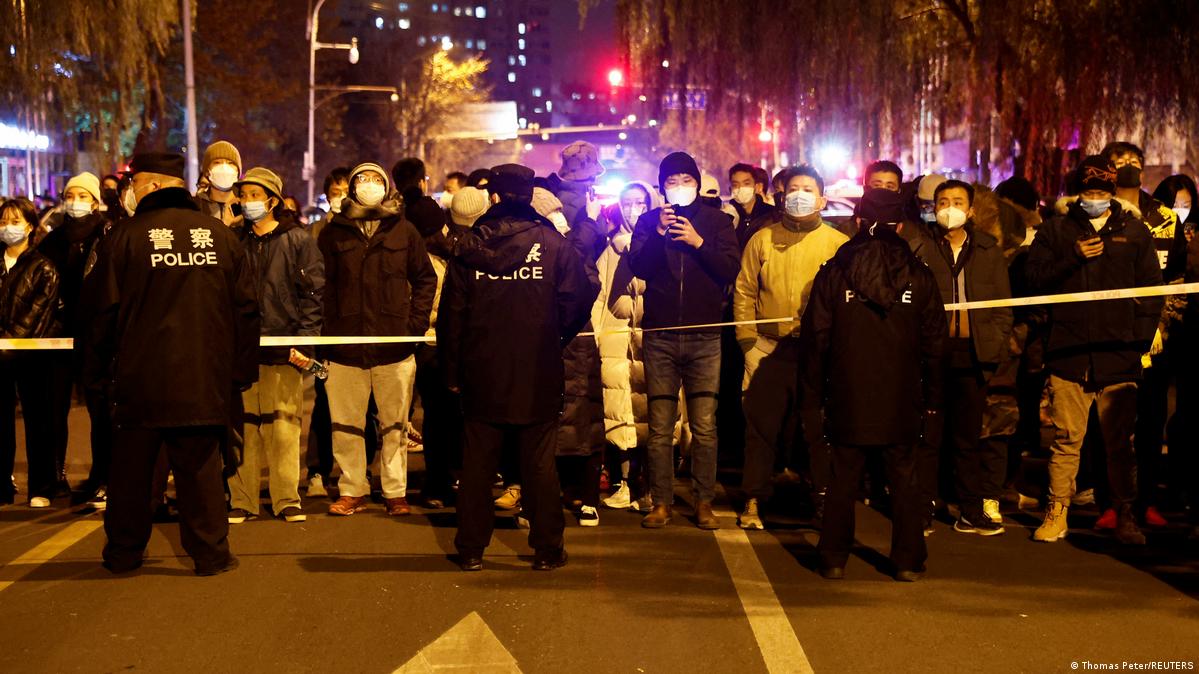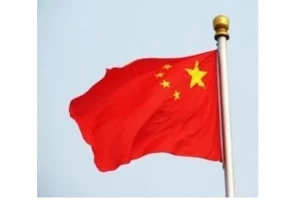Chinese Communist Party has vowed to “resolutely crack down’’ on what they called “infiltration and sabotage activities by hostile forces,” following the largest street protests in decades by citizens. The unrest has been triggered in retaliation to strict Covid-19 lockdowns that are threatening livelihoods and even denying access to essentials such as food and medicines.
Chinese state media reported that the Central Political and Legal Affairs Commission that met on Tuesday has “emphasized that political and legal organs must take effective measures to implement the spirit of the 20th Party Congress and resolutely safeguard national security and social stability.”
The commission’s statement was issued after an expanded session Monday presided over by its head Chen Wenqing, a member of the party’s 24-member Politburo.
“We must resolutely crack down on infiltration and sabotage activities by hostile forces in accordance with the law, resolutely crack down on illegal and criminal acts that disrupt social order and effectively maintain overall social stability,” the statement added.
The statement comes amid a massive show of force by security forces to prevent a recurrence of the protests that broke out over the weekend in Beijing, Shanghai, Guangzhou and several other cities, according to an AP report from Beijing.
While it did not directly address the protests, the statement serves as a reminder of the party’s determination to enforce its rule.
Hundreds of SUVs, vans and armoured vehicles with flashing lights were parked along city streets Wednesday while police and paramilitary forces conducted random ID checks and searched people’s mobile phones for photos, banned apps or other potential evidence that they had taken part in the demonstrations, the AP report said.
The number of people who have been detained at the demonstrations and in follow-up police actions is not known.
Less than a month after ensuring his political future at the 20th Party Congress, Xi appears to be facing his biggest challenge from the masses he rules with an iron hand.
The unrest has spread to college campuses and the semi-autonomous southern city of Hong Kong, as well. Beijing’s Tsinghua University, where students protested over the weekend, and other schools in the capital and the southern province of Guangdong have packed off students to their homes as part of the strategy to control the spreading unrest.
Chinese leaders are wary of universities, which have been hotbeds of activism including the Tiananmen protests.
Many mocked the government’s ever-changing line of reasoning, as well as claims that “hostile outside foreign forces” were stirring the wave of anger, the AP report points out.
Yet bolder voices called for greater freedom and democracy and for Xi, China’s most powerful leader in decades, as well as the party he leads, to step down — speech considered subversive and punishable with lengthy prison terms. Some held up blank pieces of white paper to demonstrate their lack of free speech rights, the report added.
The weekend protests were sparked by anger after 10 people died as they could not escape from a building that caught fire, due to the stringent Covid-19 lockdown in force.
Authorities eased some controls after the demonstrations which is seen as a rare exception in authoritarian China. The health authorities have also announced that vaccination of vulnerable groups will be stepped up, but maintained they would persist with their “zero-COVID” strategy.
Meanwhile, China’s National Health Commission on Wednesday reported another 37,612 cases detected over the previous 24 hours, while the death toll stood at 5,233.




















